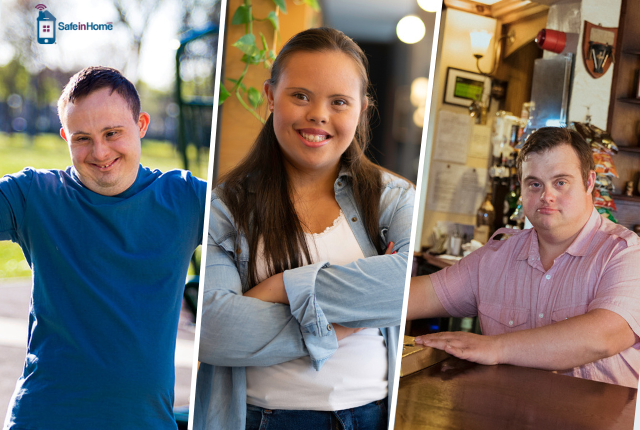What is an intellectual disability?
People with intellectual disabilities (ID) have a brain that didn’t develop properly or has been injured in some way. Intellectual and adaptive functioning is typically impaired.
Everyday tasks such as self-care, safety, communication, and socialization may be more challenging. There are different types of intellectual disabilities, ranging from mild to profound, and most are diagnosed by the age of 18.
In 2017, 7.58 million people in the United States had an intellectual or developmental disability. Developmental disability is the broader term under which intellectual disability sits and means an impairment in physical, learning, language, or behavior. It includes conditions like ADHD, Autism Spectrum Disorder, hearing or vision impairment, and cerebral palsy.
Many people with ID read and write, are employed, make decisions, maintain relationships, live on their own, and are engaged with their community. Some may need significant support to participate fully in society.
Assistive technology and Remote Supports services can enhance the capability of people with intellectual disabilities to live independent lives.
Causes of intellectual disabilities
The cause of an intellectual disability can be genetic, an unexpected chromosomal abnormality, exposure to alcohol during pregnancy, or a brain injury. More often than not, a person is born with the disorder.
Types of intellectual disabilities
Down Syndrome
A genetic disorder occurs when a person has a full or partial extra copy of chromosome 21, characterized by a variety of distinctive physical features.
Fragile X Syndrome
A syndrome that can cause a range of physical, developmental, behavioral, and emotional difficulties. It’s the most common genetically inherited intellectual disability, and it’s caused by a change to one of the genes on the X chromosome.
Fetal Alcohol Spectrum Disorders
A group of conditions such as fetal alcohol syndrome, alcohol-related neurodevelopmental disorder, and alcohol-related birth defects is caused by exposure to alcohol before birth. Symptoms vary and can cause behavioral problems in later life.
Prader-Willi Syndrome
A rare and complex genetic condition that results in physical challenges, developmental delays, and behavioral problems. Extreme hunger that leads to chronic overeating usually begins around age 2, often leading to weight gain and obesity-related complications such as type 2 diabetes. People with Prader-Willi syndrome may have distinctive facial features such as almond-shaped eyes, a narrow forehead, and a triangular mouth.
Rett Syndrome
A syndrome seen almost exclusively in females, Rett Syndrome is a genetic disorder in which the brain does not mature in the way it should. The most fundamental aspect of the syndrome is Apraxia — the inability to perform motor functions.
Autism
A developmental disability characterized by repetitive behaviors and challenges with speech and nonverbal communication. Most children are not diagnosed with autism until after the age of 3 years old. Autism is a spectrum disorder, so every individual with autism will have their own challenges and strengths.
Support for people with intellectual disabilities
Though there’s no cure for an intellectual or developmental disability, assistive technology and Remote Supports Services, can greatly improve the quality of life and allow people to live more independently. They enhanced the capabilities of people with disabilities to live the life they choose.
Early and ongoing interventions, such as speech therapy, physical therapy, occupational therapy, and social skills training, combined with the latest technology and staff support can give someone with a disability more control over their lives, and expand their capability to live a life of their choosing and engage in their community.
SafeinHome’s Remote Supports may qualify as eligible support services on most states’ Medicaid 1915(c) waiver.
These services enable people in need of long-term support to stay in their homes and participate in the community of their choice – while providing the privacy and autonomy they desire.
Remote Supports is a person-centered support service–with 24/7 access to trained staff. Combined with assistive and sensor technology, each person-centered designed plan meets the unique needs and desires of each person receiving the service.
